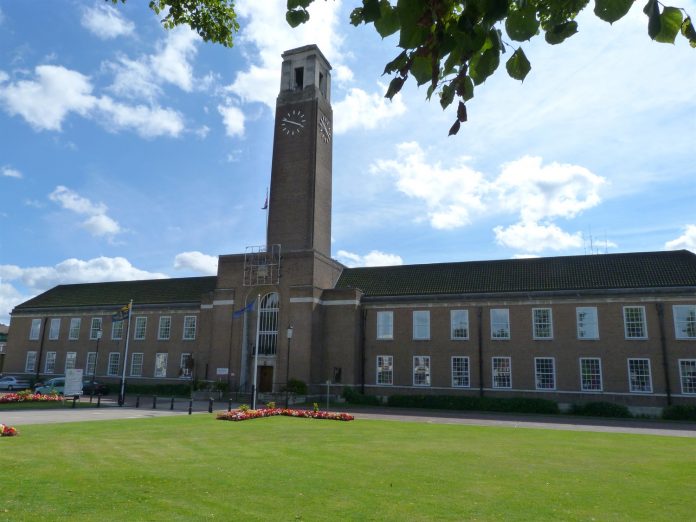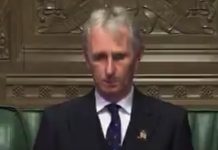Salford City Council has shared proposals to save another £11.2 million this year which will include looking at the viability of five local authority nurseries.
This is the eighth year the council has been hit by austerity with rising demand for services in adult and children’s social care both locally and nationally.
The council has now been forced to make £198 million in savings since 2010, with a 50% reduction in government funding. This is equivalent to a loss of £60,000 each and every day says the council.
City Mayor Paul Dennett said “We are prioritising protecting frontline services, social care and support to those in most need.
“Decisions on savings proposals are becoming more difficult every year with no sign of this ending. Nationally, resources are being outstripped by steadily rising demand for child support and safeguarding as local authorities struggle with huge budget cuts.”
The council has developed proposed savings which aim to have the least impact possible on frontline services and includes reducing the cost of waste disposal by £683,000 without a change in service,a saving of just over £140,000 from a review of the library services which will see extra provision of capital investment whilst expanding access to library services across the city and a saving of £68,000 is proposed by reviewing voluntary severance applications and vacancies in Health Improvement Service and Public Health
The majority of these savings have been made by reducing costs, making one off savings, redesigning services and bringing in additional income.
In addition to this there is a proposed council tax increase of 4.99%. That increase is made up of 2.99% core funding and 2% adult social care precept. This will equate to around a £1 per week increase for Band A property owners.
Mayor Dennett said “The council has reviewed all centrally held funds to support the budget and we have still needed to increase council tax to balance the books.
“It is appalling that the government, who throw rhetoric around about cutting taxes for ordinary working people, are expecting local authorities to increase council tax to pay for their cuts.
“2% of the proposed council tax increase is a precept that is ring fenced for adult social care, the option introduced by central government last year to stop social care nationally collapsing through lack of adequate proper funding. It effectively shifted a national problem to local councils and residents.
“The lack of a clear strategy from this government to deal with the crisis in health and social care and respond to pressures on children’s services is moving the burden unreasonably onto our residents.
“We’re starting a review of our Council Tax Reduction Scheme so that we can minimise the impact on people with the least means to contribute, but many residents will still see increased costs.”
Decisions have been based on the City Mayor’s priorities to protect services and support those in most need, as well as taking into consideration the public views gathered in a wide-ranging conversation about priorities in 2016, in which nearly 600 people took part.
Further to these cuts, government changes in the way Dedicated Schools Grant reduces the use of dedicated schools grant for funding council services.
This means that a further reduction of £1.75 million also needs to be made in early years spending for the 2018/19 budget. As a result the council is to start a consultation on the future of five Local Authority Nurseries.
Salford is the 22nd most deprived local authority area and is a city of stark contrasts. 70% of its 249,000 residents live in areas classed nationally as ‘highly deprived’, and 27% of the city’s children live in poverty whilst 18,860 residents claim out of work benefits and 27% of residents have no qualifications.
Mayor Dennett believes that government cuts are disproportionately hitting poorer local authorities, where cuts to certain areas of service provision lead immediately to cost pressures elsewhere as demand increases.
“Residents are being hit hard by the impact of government cuts but more so in places like Salford.
“This year we have an extra unexpected burden put on Salford, with changes to government policy on Dedicated Schools Grant which limits the use of the grant to fund in-house early years’ services. This has led to the difficult decision to put forward a review of the future of Local Authority Nurseries.
“Children’s and adults social care services already makes up nearly 43% of our core spending. And an increase in demand is resulting in an extra £5 million being spent on children’s services this year.
“The major ray of light for Salford has been from the economic growth of the city, increasing business rates and council tax income by £4.8 million. Without that income stream, our present situation would be much worse.”
An overview of proposals has been published on the council’s website to give residents, businesses and organisations the opportunity to consider the wider budget proposals before the Council meeting on 28 February. The Local Authority Nursery consultation will run until September.
Members of the public can give ideas on what the council can do differently online www.salford.gov.uk/talkbudget before the final decision is made by full council in late February.







